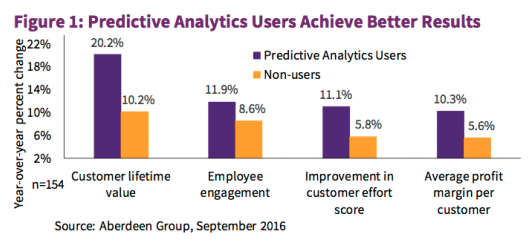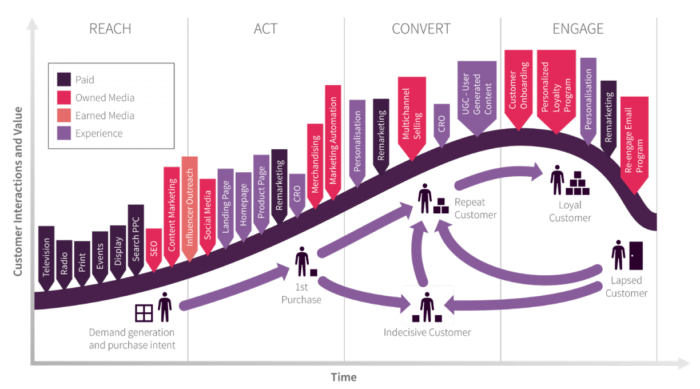Is your IT/High Tech business competing online?
With so much competition, you need to stand out
- AI is now more accessible than ever, allowing brands both big and small to benefit from the insights and automation options it provides
- You need to be visible to existing and your future potential customers, instill trust in your IT/high tech brand, and once converted, engage them to retain them and promote advocacy.
The RACE Growth Process is a tried-and-tested methodology to support the growth of IT/High Tech businesses.
- Apply a planned approach to your IT/high tech company’s marketing to rapidly review, find opportunities, build a high-performing team and develop your marketing strategy to reach, acquire and engage more customers.
-
Smart Insights have marketing solutions for retailers of all sizes
Marketing using augmented and virtual reality allows brands to craft experiences, engage consumers and encourage conversions in interesting ways.
Machine learning can provide predictive analytics that allow you to improve the results of your digital marketing
- There’s a lot of hype around artificial intelligence and machine learning for marketing right now, especially as it is easier than ever for businesses of all sizes to make the most of AI solutions.
- Machine learning techniques involve analysis of historical data sets of business interactions with audiences and their responses to identify the communications success factors such as targeting, copy, offer, and frequency that can be used in future campaigns.
Using machine learning for predictive analytics
- Machine learning allows you to create and apply predictive models and algorithms that have the ability to learn without being explicitly programmed. Computer models then make predictions of success based on patterns extracted from historical data.
- These are used to define rules, which are implemented to automate tasks such as targeting media or emails to the most valuable segments with the most relevant creative, offer, and timing.
- In the context of marketing, machine learning usually refers to the process of applying machine learning algorithms to data sets so as to generate insights via predictive analytics.
- These insights have value to the organization and are acted on by humans or by defining rules. For example, defining a rule establishing when to send re-targeting emails.

- Studies show that those who utilize predictive analytics consistently get better results across a number of key metrics. Both the average profit margin per customer and customer lifetime value is twice as high for businesses using predictive analytics.
Why should you focus on machine learning?
- Machine learning applications offer the best potential for marketers in small and medium businesses to make their communications more relevant and responsive.
- It’s impossible for all but the largest businesses to develop their own AI technology, but AI is now open to all using packaged machine learning software as provided.
- Businesses with AI-trained in-house development resources can potentially use publicly available algorithms. For example, Amazon recently made its Amazon Personalize service available, as part of Amazon Web Services. It’s billed as ‘Real-Time Personalization and Recommendation for Everyone’.
What should you remember about machine learning?
- The goal of machine learning for predictive analytics is to produce a prediction model that can successfully be generalized to real-world data and still produce accurate results.
- Merely searching for prediction models that are consistent with the data set is equivalent to simply memorizing the data set – it does not offer new insights and no ‘learning’ is taking place.
- If a predictive model is to be useful, it must be able to make predictions for queries that are not present in the data. It must tell us something about the underlying relationship between the descriptive and target features.
- If a model can do this, it is said to ‘generalize’ well. Models that accurately reflect the data set but cannot accurately predict new queries, which are not present in the original data set, do not ‘generalize’ well.
Our recommended omnichannel marketing tools for IT/high tech businesses
Structure a plan using the RACE Framework
- Learn how to structure a comprehensive omnichannel marketing plan, using the Smart Insights RACE planning framework
Define content marketing strategy
- Learn how to develop a content marketing strategy using our content analysis and planning tools
Define digital value proposition
- Learn how to craft a powerful Digital Value Proposition (DVP) and how this differs from a brand proposition





